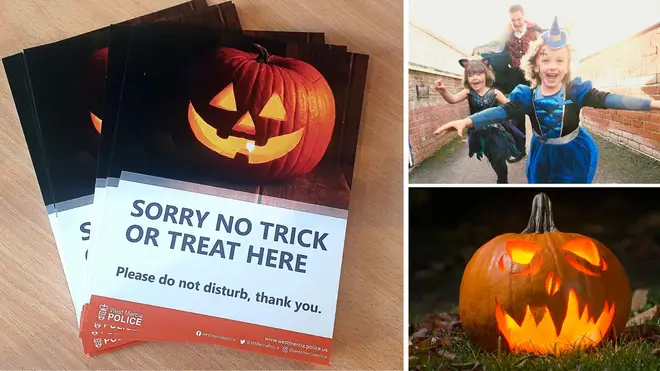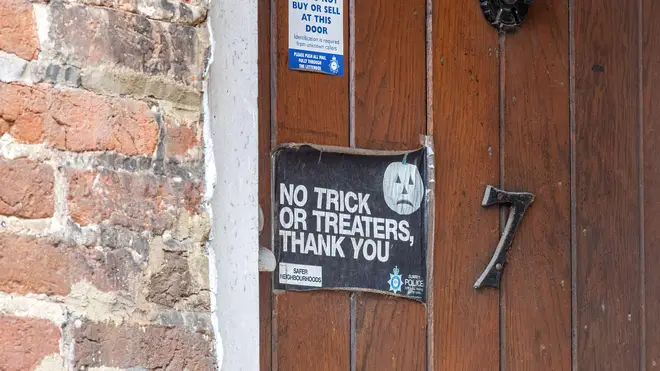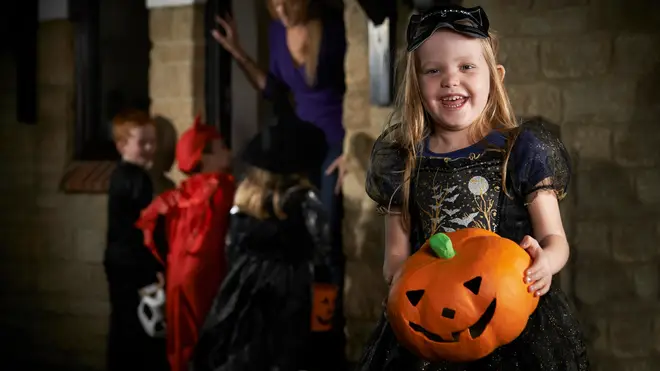
Tom Swarbrick 4pm - 7pm
27 October 2023, 17:02

Is trick-or-treating illegal in the UK? And can you put out signs to stop them this Halloween? Here's everything you need to know about the spooky tradition from rules to etiquette.
Halloween is upon us in the UK and along with spooky costumes, pumpkin carving and scary movies comes the age old tradition of trick-or-treating.
A love or hate the event, every year those who are a little unsure of strangers knocking on their door for sweets like to find out where they stand when it comes to trick-or-treating rules and laws.
For example, is trick or treating even legal? Can you call the police if you're disturbed? The simple answer is yes.
Trick-or-treating in the UK is permitted, but the police have the authority to address individuals involved in disruptive behaviour, such as harassment, vandalism, or disturbances.
In cases involving children under the age of 16, their parents may be held responsible for any fines imposed.
Here's everything you need to know about trick-or-treating in the UK from the minimum legal age, to the unwritten rules and how to stop them from knocking at your door.

In the UK, there is no specific minimum age requirement for going trick-or-treating. However, it's strongly advised that young children are always accompanied by their parents.
Contrasting this with certain towns in the United States that set an age limit of 12 for trick-or-treating, it's evident that the UK adopts a more flexible approach.
While there is no formal age limit, it's worth noting that the majority of participants typically fall within the primary school age range, typically ranging from around four to eleven years old.

Do's:
Don'ts:
If you want to minimise door knocks on Halloween, here's some tips:
Remember that Halloween is meant to be a fun and community-oriented holiday for children, and most trick-or-treaters are just looking for a good time.